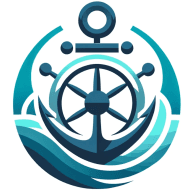The maritime industry, a cornerstone of global trade, is constantly evolving. This blog post aims to provide a comprehensive update on the latest trends and developments in this dynamic sector. We'll delve into technological advancements, regulatory changes, environmental initiatives, and more. Stay tuned for an insightful journey into the maritime world's current landscape.
Technological Advancements in the Maritime Industry
The maritime industry is witnessing a technological revolution. Automation and digitalization are at the forefront of this transformation.
Shipping companies are increasingly adopting smart technologies to enhance operational efficiency. For instance, the use of Artificial Intelligence (AI) and Machine Learning (ML) is growing. These technologies help in predictive maintenance, route optimization, and cargo tracking, reducing operational costs and improving service quality.
Moreover, the industry is exploring the potential of autonomous ships. These vessels, equipped with advanced sensors and navigation systems, can operate without human intervention. While still in the experimental phase, autonomous ships promise to revolutionize maritime transport by reducing human error and increasing efficiency.
Blockchain technology is another innovation making waves in the maritime industry. It provides a secure and transparent platform for recording transactions, facilitating smoother trade flows. Several shipping companies and ports have already started experimenting with blockchain-based solutions.
Regulatory Changes in the Maritime Sector
Regulatory bodies play a crucial role in shaping the maritime industry. Recent years have seen significant regulatory changes aimed at enhancing safety and sustainability.
The International Maritime Organization (IMO) has introduced stringent emission standards to combat climate change. The IMO 2020 regulation, which came into effect last year, limits the sulfur content in ship fuel to 0.5%, down from 3.5%. This move has prompted shipping companies to switch to cleaner fuels or install scrubbers to reduce sulfur emissions.
In addition, the IMO is working on a strategy to reduce greenhouse gas emissions from ships. The plan aims to cut emissions by at least 50% by 2050 compared to 2008 levels. This ambitious target is driving innovation in ship design and propulsion technologies.
Environmental Initiatives in the Maritime Industry
The maritime industry is increasingly focusing on sustainability. Shipping companies are adopting various measures to minimize their environmental footprint.
One such initiative is the use of alternative fuels. Liquefied Natural Gas (LNG), biofuels, and hydrogen are emerging as viable alternatives to traditional marine fuels. These fuels produce fewer emissions and help shipping companies comply with environmental regulations.
Another trend is the adoption of energy-efficient technologies. For example, some ships are now equipped with solar panels and wind turbines to generate power. These technologies not only reduce fuel consumption but also lower emissions.
Moreover, shipping companies are investing in waste management solutions. They are implementing systems to treat and recycle waste onboard, reducing pollution.
Economic Trends in the Maritime Industry
The maritime industry is a barometer of global economic health. The recent economic trends in this sector provide insights into the state of world trade.
The COVID-19 pandemic has had a significant impact on the maritime industry. The initial lockdowns led to a sharp drop in demand for shipping services. However, the industry has shown resilience and is gradually recovering.
On the other hand, the ongoing trade tensions between major economies are creating uncertainties. These geopolitical issues can affect shipping routes and volumes, impacting the industry's profitability.
Despite these challenges, the maritime industry is poised for growth. The rise of e-commerce and the increasing demand for goods in emerging markets are expected to drive shipping volumes in the coming years.
Workforce Trends in the Maritime Industry
The maritime industry is a major employer worldwide. The sector is undergoing changes that are affecting its workforce.
The increasing automation in the industry is changing the nature of maritime jobs. While it may reduce the demand for certain roles, it is also creating new opportunities in areas like data analysis and cybersecurity.
The industry is also focusing on diversity and inclusion. Shipping companies are taking steps to attract more women and people from diverse backgrounds. This move not only promotes equality but also brings in fresh perspectives, enhancing the industry's competitiveness.
Furthermore, the industry is investing in training and development to equip its workforce with the necessary skills. This is crucial to keep pace with the rapid technological changes in the sector.
Future Outlook of the Maritime Industry
The future of the maritime industry looks promising, albeit challenging. The sector is set to undergo profound changes driven by technology, regulations, and market dynamics.
Digitalization will continue to reshape the industry. Technologies like AI, blockchain, and IoT will become more prevalent, driving efficiency and transparency.
Sustainability will remain a key focus. The industry will need to innovate and adopt cleaner fuels and technologies to meet the stringent environmental targets.
The industry will also need to navigate the economic and geopolitical uncertainties. However, the growing global trade provides ample opportunities for growth.
Wrapping Up the Latest in Maritime Industry Developments
The maritime industry is in a state of flux, with technology, regulations, and market trends shaping its future. While the challenges are significant, the industry's resilience and adaptability are evident. As we navigate these exciting times, staying abreast of the latest maritime industry updates is crucial for anyone involved in this sector. This blog post has aimed to provide a comprehensive overview of these developments, and we hope it has been informative and insightful.

